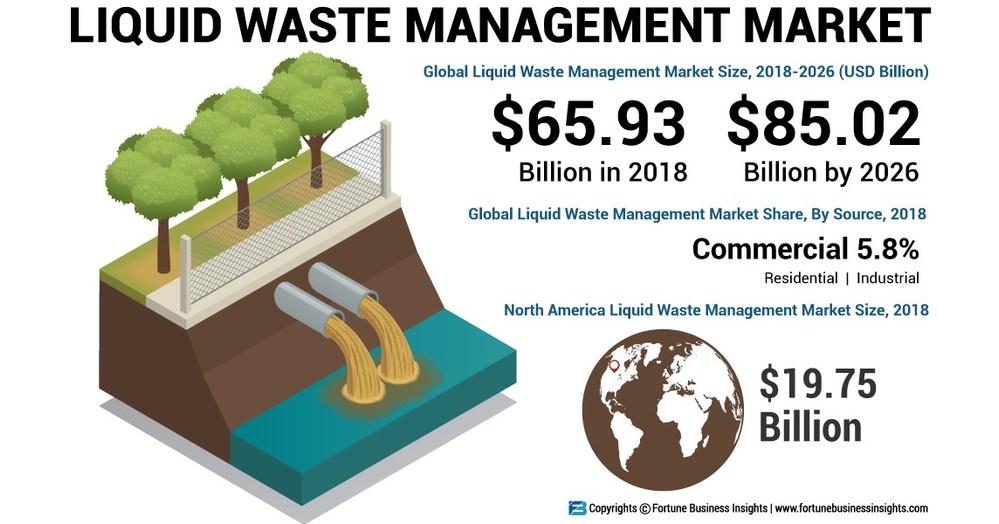An Unbiased View of Reclaim Waste
An Unbiased View of Reclaim Waste
Blog Article
The 7-Second Trick For Reclaim Waste
Table of ContentsReclaim Waste Can Be Fun For EveryoneUnknown Facts About Reclaim WasteWhat Does Reclaim Waste Mean?Excitement About Reclaim WasteReclaim Waste Can Be Fun For EveryoneAbout Reclaim Waste
With appropriate fluid waste administration, business can minimize energy-intensive treatment procedures and disposal prices. By following a system for managing liquid waste, companies can avoid pricey penalties and fines and avoid adverse publicity.Keep in advance of regulations and keep a risk-free office with a digitized compliance tool. Classifying liquid waste is crucial for effective storage space, therapy, and disposal. Environmental, Health, and Safety (EHS) groups, waste monitoring officers, and compliance managers can manage these wastes safely and successfully when they understand the basics: Created from families, this kind of fluid waste originates from toilets, sinks, showers, and washing makers.
(https://guides.co/g/reclaimwaste1?ajs_event=Referred)Accumulate representative samples from different points within the waste stream to guarantee accuracy. Fluid waste, particularly dangerous ones, poses substantial dangers during this step.
The Definitive Guide to Reclaim Waste
Segregate the waste based upon its kind (e.g., unsafe or non-hazardous) to make sure proper handling. Shop waste in safe and leak-proof containers to avoid spills throughout collection. Label the containers properly, consisting of the type of waste, prospective threats, and handling guidelines. Lots the secured containers into transportation automobiles with vacuum trucks or mobile tanks.
is required when the effluent will certainly be recycled or discharged into community swimming pools. Disinfection (e.g., chlorination, ultraviolet light, ozonation) and nutrient elimination (e.g., denitrification and phosphorus obliteration) are recommended under stringent laws. This phase in the process is purely managed because it is when most risks occur. Numerous firms went against numerous fluid waste disposal regulations in the last few years.
After choosing the finest type of treatment approach for fluid waste, business should discover means to take care of this correctly. Here are some effective approaches of liquid waste monitoring: get most dealt with liquid waste that satisfies discharge standards. describes using treated wastewater in farming lands for watering as long as the effluent meets sanitary levels per guidelines.
The 9-Minute Rule for Reclaim Waste
are utilized by markets that produce big volumes of low-toxicity liquid waste. Shallow basins consist of fluid waste that is permitted to vaporize via natural procedures. The deposit left can be taken care of in landfills. involves shedding liquid waste at high temperatures and transforming it into gas and ash - liquid waste removal. This kind of disposal undergoes stringent environmental guidelines as a result of potentially dangerous exhausts.
The findings must be documented, assessed, and saved not simply for submission to governing authorities but additionally for making improvements in the future. Use dependable tools, approaches, and software solutions to ensure accurate and regular information collection. Remain updated on appropriate ecological regulations and market criteria. Share details with appropriate stakeholders (e.g., staff members, governing government agencies, and close-by neighborhoods) to keep transparency and responsibility.
Fascination About Reclaim Waste
No matter of the business size or industry, there are many obstacles related to this task. Understanding these can help them effectively manage their operations and minimize their ecological effect. makes it tough to treat and get rid of fluid waste safely. Business that can't spend in centers ought to take into consideration teaming up with the general public sector for better options.
Liquid waste refers to any kind of product in a fluid state that is excess, undesirable, or disposed of. One significant difficulty for business is the absence of ideal storage space facilities for fluid waste. Partnering with liquid waste solutions will substantially lessen this challenge Standard skip bins and other containers that are usually made use of for strong waste are often inadequate for the distinct demands of taking care of liquid materials.
The Of Reclaim Waste
This blog digs into the qualities of liquid waste, discussing just how spills and contamination events can be handled efficiently. It additionally discovers the measures companies can require to protect against future leaks and what to do when spills unavoidably occur. Fluid waste includes any undesirable or surplus product that exists in a fluid kind and is set for disposal.
This kind of waste arises when an item is no longer needed, much like any type of other kind of trash. At times, this suggests just tossing it away, which can happen as a result of read review creating greater than needed. Accountable administration through appropriately disposing is a must. It is vital to engage skilled fluid waste management specialists when transporting or taking care of fluid waste.

The Single Strategy To Use For Reclaim Waste
"product should pass through a 0.45-micron filter at a stress differential of 75 psi" in order to be specified as a liquid. Both have their distinctions.
Oil spills can cause soil contamination and various other ecological catastrophes. Both businesses and individuals can significantly take advantage of recognizing correct garbage disposal processes through nine finest practices in waste management. These methods are lined up with the well established waste pecking order. Waste avoidance is the most efficient method for managing resources and minimizing ecological effect.

Report this page